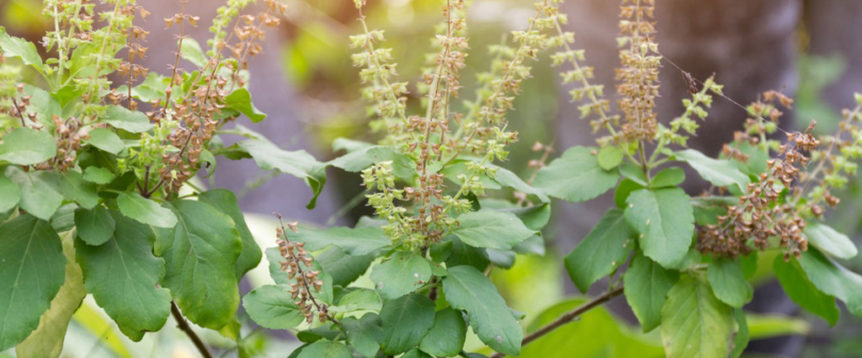› What is it?
Holy basil is a peppery-tasting, leafy green plant of a different species than the basil commonly used in cooking. Holy basil can be eaten, however, and has been studied for its medicinal properties.
› Health benefits
Holy basil has been used in Ayurvedic medicine for malaria, eye diseases, bronchitis, nausea, eczema, stomach ulcers and insect bites. But more evidence is needed to evaluate its effectiveness in most of these health conditions. However, its nutritional value is high, as the plant contains calcium, zinc, iron, and vitamins A and C. It also has antibacterial, antifungal, antiviral and anti-inflammatory properties.
Stress and anxiety
The seeds, leaves and flowers of holy basil are adaptogenic, meaning they help the body adapt to stress. Animal studies show that holy basil leaf extracts increase endurance and reduce tissue damage in stressful physical scenarios. Human and animal studies on the leaves show that it has antidepressant properties and may reduce both generalized anxiety and social anxiety.
Diabetes
Studies have shown that holy basil might improve blood sugar levels in people with diabetes, but more research is needed in this area.
Cholesterol
Studies on animals have suggested that fresh holy basil can lower “bad” cholesterol levels and raise “good” cholesterol levels.
› How much do I need?
The dose of holy basil depends on the user’s health and age, as well as what it is being used for. There is not enough scientific evidence to determine an appropriate dosage range, but it should be used with caution, especially when pregnant, breastfeeding, or taking medications.
› In food
Holy basil is a green, leafy plant whose flowers, seeds and leaves can all be eaten. The leaves are known for their peppery taste, and it is sometimes called “hot basil.” The leaves can also be used in a tea.
› Dietary supplements
Holy basil supplements are available in pill form or as an alcohol extract. It is also available in ointments purported to treat eczema and as an essential oil said to relieve insect bites.
Source: Healthline, WebMD
Please consult your health care provider before making changes to your vitamin/supplement regimen.


